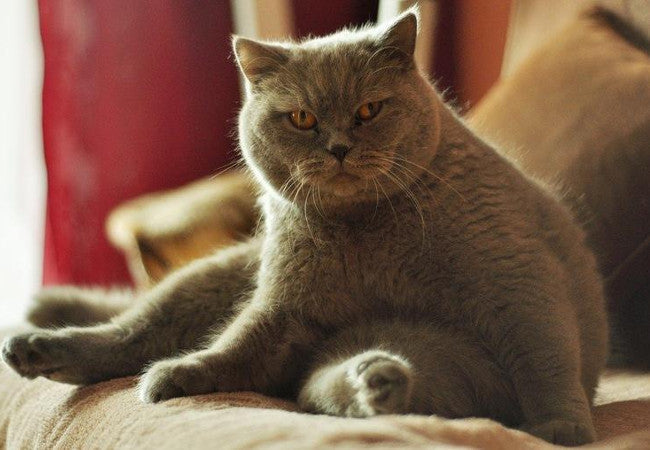Here are our top 5 tips for helping your cats achieve and maintain a healthy weight, which will reduce several health risks, such as diabetes and arthritis and will improve their quality of life.
Measure out food
A major factor responsible for feline obesity is that owners tend to just fill the bowl and end up feeding much more than their cats actually need. Splitting your cats' daily allotment of food into multiple meals can help keep them from feeling deprived and increase the number of calories burned.
Keep your cats' water bowl full
When your cats are eyeing their empty food bowl, offer fresh water instead of food. Be sure to clean and refill the water bowl regularly.
Conduct regular weigh-ins
Buy a scale and weigh your cats every one to two weeks. Regular weighing is a useful way to monitor weight changes. If your cats do not sit still on the scale, weigh a box or yourself, then weigh them in the box or whilst holding them and subtract the excess to get your cats' weight.
Avoid giving treats
Be ready to employ some tough love and distractions. You hear a mew from under your feet and there sit your cats waiting for you to toss them a treat. But overdoing it on the treats may encourage weight gain in your cats. Playtime may displace treats. You can even consider completely cutting treats out of your cats' diet and rewarding them with cuddles and interactive toys.
Provide regular exercise
Make sure your cats burn calories through exercise. One of the most effective ways to do that is to play with your cats. Spend about 10-15 minutes a few times each day engaging your cats in some form of activity to keep them lean and amused.
Last but not least, never put overweight cats on 'crash diets'. Any period of time without food can potentially be dangerous. A slow, steady weight loss is ideal.

